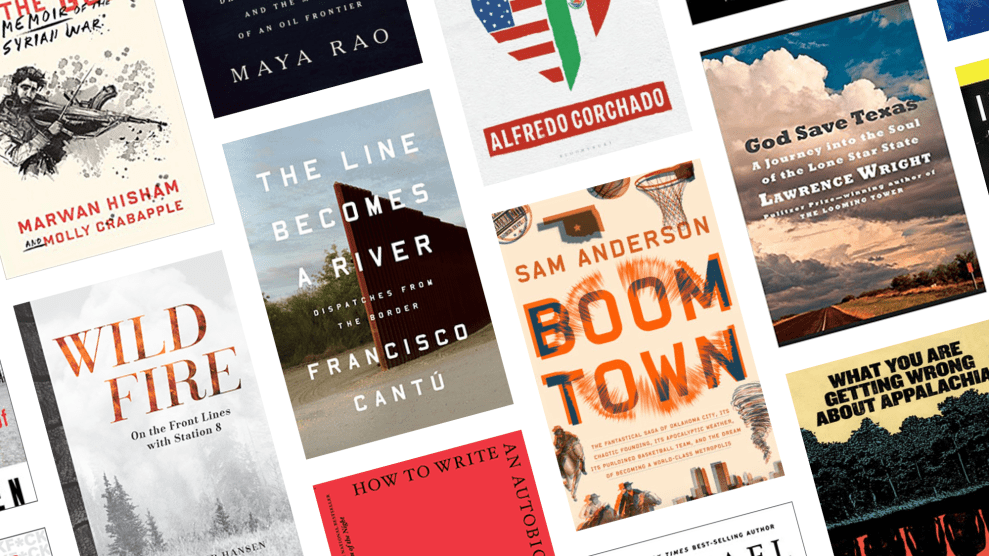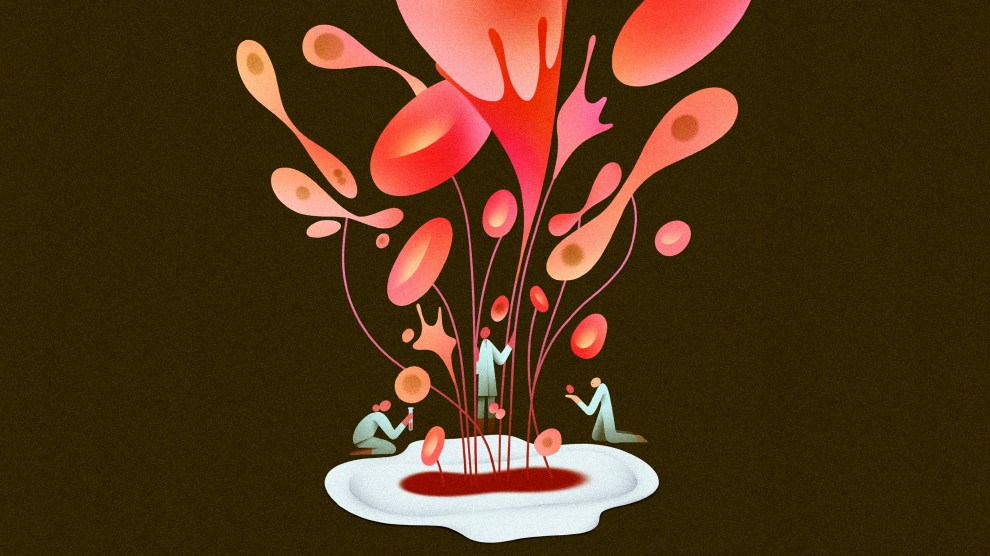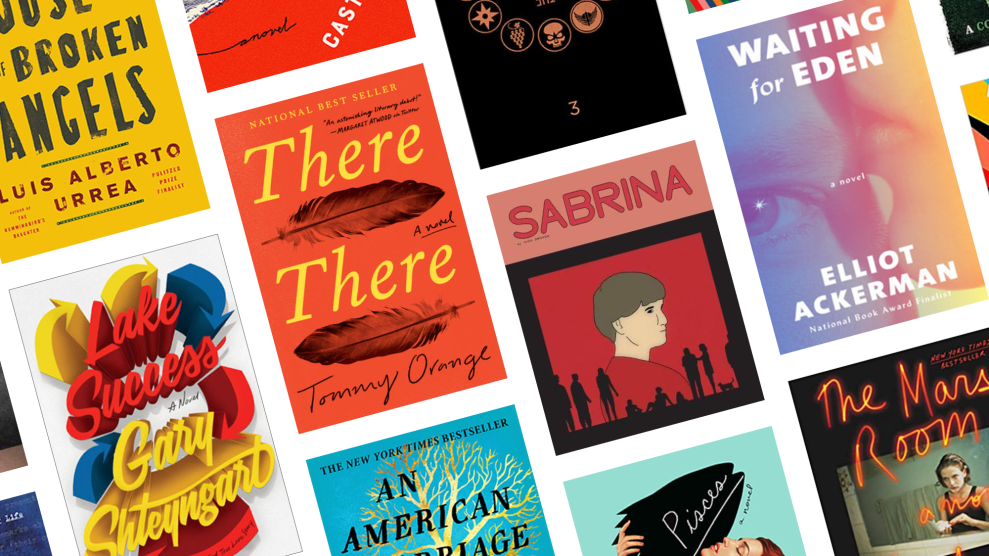
Between your pinging cellphone, America’s bitter politics, and the orange one’s deranged tweeting habit, you would be forgiven for wanting to divorce yourself from reality for a while. So, at the end of this very long year, we have just the answer you need: Xanax.
Kidding, kidding! Nah, a better and less deadly escape from our woes is great books! So ditch your oppressive technology, instruct the naysaying voices in your head to chill out, and get yourself lost in somebody else’s story for a while. Here are some of the fiction reads we turned to for a reprieve this year. Sure, we empathize with the characters who find themselves in dire circumstances, but at least it’s all made up, right?
Right?!
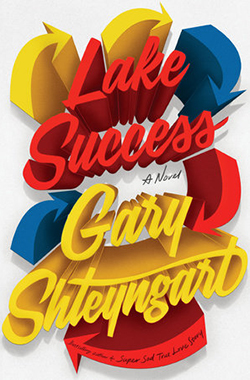
Lake Success, by Gary Shteyngart. I recently learned that a guy I knew in college was sent to prison. He’d launched a hedge fund and had $250 million under management, but according to court documents, he’d been buying up a big stake in a single company and lying to his investors about it. Convicted of fraud, he originally faced 12 to 15 years, but got off light after the judge deemed him an important presence in the life of his autistic son. Lake Success, the latest by acclaimed author Shteyngart, revolves around a similar character. Barry is a Manhattan hedge funder who has made the wrong bet and is hiding from his investors. He’s somewhere on the spectrum himself, and he just cannot deal with his severely autistic son or the way the boy affects his sense of self-worth, or his marriage to the young Yale Law-trained wife he has taken “off the market.” With everyone on his tail and his marriage falling apart, feckless Barry hops on a Greyhound for a cross-country trip in order to, he hopes, spark up a relationship with his college girlfriend. His cringeworthy and rather funny misadventures double as Shteyngart’s commentary on Wall Street greed and America’s wealth gap. As Shteyngart put it to me in an interview: “Everybody has to ride the Hound. It is the real story of the land, and the land is suffering.” —Michael Mechanic, senior editor
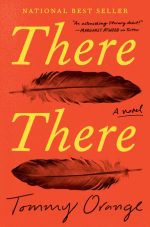
There, There, by Tommy Orange. In this searing debut, Orange gives us something rare: His book’s 12 unforgettable characters, like its 36-year-old author, are urban Native Americans—postal workers and custodians and high schoolers who are living in Oakland and fighting “to be a present-tense people.” Their stories become ever more tightly braided—think Colum McCann’s Let the Great World Spin—as the book moves toward its explosive finale, at a powwow in a football stadium. Orange’s addictive narrative will open your eyes to an essential, if often overlooked, layer of the city around you. —Maddie Oatman, story editor
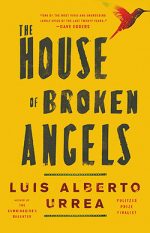
The House of Broken Angels, by Luis Alberto Urrea. Big Angel—patriarch of the De La Cruz clan, “El Jefe” emblazoned on his coffee mug, a man who once “could make the walls crack with his voice”—is dying of cancer. Relegated to a wheelchair, he realizes that “somebody was going to have to put his shoes on him. Infuriating.” So begins this rollicking portrait of a Mexican American family as its four generations gather in San Diego for Big Angel’s last birthday. The author of eight novels, four poetry volumes, and five nonfiction titles (including 2005 Pulitzer finalist The Devil’s Highway), Urrea grew up reading immigrant sagas but never about the flawed and utterly human cross-border clan he set out to depict in this funny and bittersweet epic. —M.O.
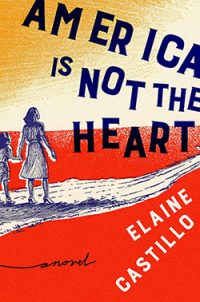
America is Not the Heart, by Elaine Castillo. Nimang, a.k.a. Hero, eschews her upper-class background and joins guerrilla communist forces in the Philippines. Poverty-stricken Paz climbs her way up and into the United States. Roni struggles through life as a first-generation kid with terrible eczema. Rosalyn brings people together but doesn’t quite know what she wants. Flipping forward and back through time, Castillo challenges notions of home, critiquing class structures, exploring generational relationships, and examining cultural divides within the Filipino community, both overseas and in Milpitas, California, where Hero finds herself thrown into the lives of the other three. After being captured, tortured, and finally reunited with family, she slowly learns how to find a place for herself. This book has everything—war, love, family, displacement, and, of course, a Hero. —Kari Sonde, editorial fellow
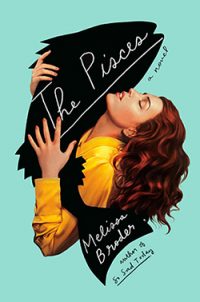
The Pisces, by Melissa Broder. Mermaids in the media are pretty much all the same, but not in this book, where, finally, we get to have sex with one. Well, a merman anyway. This is the only mermaid tale in pop culture that manages to flip the standard mermaid script on its tail (ha), with an utterly irresponsible and often unlikeable main character, Lucy, and a hot young merman named Theo. After breaking up with her equally unlikeable boyfriend, Lucy heads to her half-sister’s literal glass house in California to dogsit a foxhound named Dominic, and finds herself in an explicitly erotic love affair that exposes some uncomfortable truths about obsession, love, and femininity. The Shape of Water wishes it were this book. NSFW. —K.S.
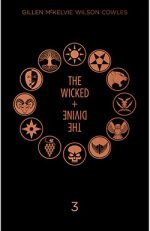
The Wicked + The Divine Book 3, by Kieron Gillen and Jamie McKelvie. People often call their favorite pop star a “god.” But in this comic book series, thinly veiled variations on Rihanna, Kanye, and Prince (RIP) are literal deities. Once a century, 12 people are elevated into gods, reincarnations of various world religions. They walk among us mortals and wield immense powers for two years. And in 2018, if a teenager suddenly transmogrified into Dionysius, of course he’d use his powers to throw the best EDM raves, and the modern Lucifer would style herself as Bowie’s Thin White Duke. It’s an insightful look at pop culture and celebrity in the social-media era, paired with a killer sense of humor, gorgeous art, and a mystery that’ll have you eagerly awaiting the next installment. Catch up on the series before it completes its monthly run in 2019. —Patrick Caldwell, associate editor
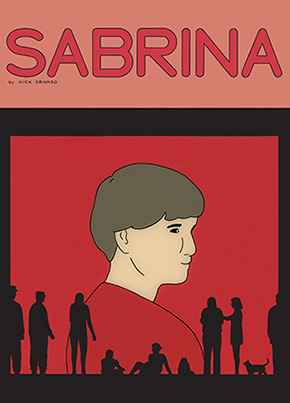
Sabrina, by Nick Drnaso. If you weren’t already convinced that the news and the internet are making us miserable, Drnaso’s unsettling graphic novel should seal the deal. Through the story of the title character’s disappearance and murder, Drnaso explores how tragedy can spin off into Infowars-type conspiracy mongering. The eerily affectless art adds to a frighteningly spot-on portrait of a society that’s losing touch with reality—and empathy. —Dave Gilson, senior editor
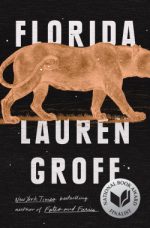
Florida, by Lauren Groff. Some readers may know Groff from her best-selling 2015 novel Fates and Furies, Barack Obama’s favorite book that year. But her new story collection, Florida, is even better. Groff has always been a writer of lush, exquisite sentences, and the short story is the perfect form to showcase her talents. In this collection, Groff conjures up a Floridian landscape that often feels eerie and otherworldly, with protagonists tormented by snakes, hurricanes, and anxiety about the state of the planet. You’ll want to savor every page of these moody, atmospheric stories. —Sophie Murguia, editorial fellow

Warlight, by Michael Ondaatje. Magical—that’s often how Ondaatje’s prose and storytelling has been described, and justifiably so. As he has explained it, Ondaatje, best known for The English Patient, starts all his novels with an image, not even an idea. And the narrative spreads. For this lyrical work set in post-World War II London, he began with a picture of adolescents abandoned by their parents. From this Ondaatje weaves an eloquent and gripping tale of boarding school drama, young love (or lust), greyhound smuggling, and a horrific (and little-known) war crime. The left-behind teens are cast into their own lives, guided by oddballs, each with at least one foot on the wrong side of the law, and, later on, try to understand their memories of childhood. It’s a multilayered mystery: There are both petty and geopolitical intrigues to be figured out and, more importantly, family secrets to be untangled—to the limited degree that’s ever possible. —David Corn, DC bureau chief

Waiting for Eden, by Elliot Ackerman. An Iraqi War veteran named Eden lies in a hospital bed, disfigured beyond recognition. His wife, Mary, and the ghost of his unnamed friend wait for him to die. After three years, Eden becomes conscious and memories flood back. This novella-sized book is deceptively simple to read. On the surface, it could be read as a ghost story, a love triangle, an anti-war novel—or all three. But Ackerman, who served in Iraq and Afghanistan, is able to use his personal experiences with the horrors of war at home to turn it into a story of human endurance and the struggle to be understood. —Jordan Gass-Pooré, digital media fellow
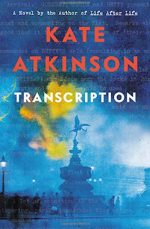
Transcription, by Kate Atkinson. To call Transcription a spy novel wouldn’t do it justice. As with her earlier reinvention of the classic detective story, Atkinson’s upending of the espionage genre is a literary production, not an airport book. Moving between 1940s London and the Cold War, Transcription is a war story told by 18-year-old Juliet Armstrong, who is initially enlisted to transcribe recordings of covert meetings between an MI5 agent and fascist sympathizers who believe she’s one of their own. Atkinson capitalizes on the way women become wallpaper to powerful men, crafting a character who shape-shifts but eventually suffers the consequences of her subterfuge. A truly British subplot: a fictional rendering of the true story of how the storied BBC broadcast the daily news during the war even as bombs fell on London. And in vintage Atkinson, dogs also play a supporting role. —Stephanie Mencimer, reporter
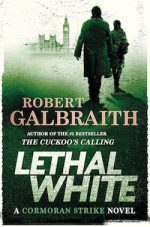
Lethal White, by Robert Galbraith. J.K. Rowling’s fourth detective novel, written under a nom de plume, is more evidence that the legendary children’s book author has significant and under-appreciated talents as a literary crime writer. This latest installment of the Cormoran Strike series reaches Deathly Hallows-weight, coming in at more than 650 pages. But as with late Potter, Rowling is stretching out and fleshing out her main characters: Strike, the one-legged Afghan war vet, now a sleuth; his assistant-turned-partner, the plucky but slightly damaged Robin Ellacott; and her insipid boyfriend, Matt (usually referred to by Strike as “that twat.”) Their love triangle lends sexual tension to a complex, first-rate mystery story: A mentally ill young man visits Strike and insists that as a kid, he’d seen a child murdered. The ensuing investigation deftly travels through blackmail and suicide (or is it?), from socialist political groups to London’s highest political circles. It’s loads of fun. —S.M.

Cherry, by Nico Walker. This loosely autobiographical debut novel follows its nameless protagonist through a lot of life stages: lovestruck college kid, combat medic at the height of the Iraq War, traumatized veteran, junkie, bank robber. Walker’s descriptions of Army life are caustic, hilarious, and thoroughly profane. (Quil Lawrence’s review may have set a record for most expletives in an NPR story.) But Cherry is also full of empathy, both for its characters and for the disillusioned, opioid-ravaged America that forms its backdrop. (Read more about Walker’s story in my Q&A.) —Daniel Costa-Roberts, editorial fellow
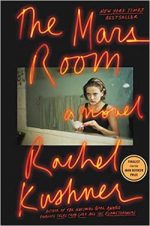
The Mars Room, by Rachel Kushner. My book club reads a lot of critically acclaimed works, but there wasn’t a single book this year I consumed as rapidly as The Mars Room. The story of Romy Hall, a mother who is imprisoned after murdering her stalker, is a gritty look at how the prison of our memories and regrets are far worse servitude than anything the state can impose. Kushner’s prose is unparalleled in its ability to weave stream of consciousness, fine sensory details, and surrealism that evokes more the work of a poet or playwright than a novelist. While some readers might find the disproportionate time spent on the various characters a bit unsettling, the book isn’t designed to comfort readers. —Tonya Riley, editorial fellow
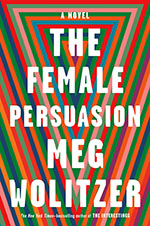
The Female Persuasion, by Meg Wolitzer. Wolitzer’s sweeping, 456-page novel is a meditation on female mentorship, power, and the tensions that form between people who want the same thing but who come at it from very different perspectives. Baby feminist Greer Kadetsky, who is facing her first great injustice amid her efforts to rid her college campus of a sexual assailant, meets feminist icon Faith Franks, who changes Greer’s life forever. The book’s premise can sound like an exhausting read without context—as if gender politics and Twitter arguments and #MeToo all got together and somehow produced a literary baby. But the result is riveting. Wolitzer’s prose is perfect, provocative without being overwrought, detailed without being gratuitous, and full of sharp critiques and twists that require a close eye. She writes the complicated relationships between women without venturing anywhere near the cliché, and the result is worth every single one of those 456 pages. —Becca Andrews, assistant news editor
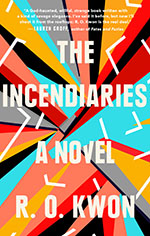
The Incendiaries, by R.O. Kwon. This novel, Kwon’s debut, is a stunner, with the sort of storytelling that sticks with you long after you’ve read the final page. The Incendiaries is a story of power, religion, and fanaticism told through three characters. Will Kendall is a college student mourning the loss of his faith and struggling to understand himself outside of that faith when he meets Phoebe Lin, who bears her own grief but has not previously tasted religious zeal until she meets John Leal, a charming cult leader who patiently reels her in. In this tale, there is no good versus evil, no simple villain or victim. Kwon’s greatest victory is in depicting the acute pain of losing religion alongside the euphoric, confident high of gaining it—and in crafting a through-line by means of personal experience, which makes it all the more engaging. —B.A.
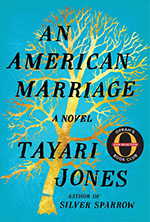
An American Marriage, by Tayari Jones. Jones has one of the most vibrant voices in Southern storytelling today. In An American Marriage, we meet Celestial and Roy, newlyweds whose lives are turned upside down when Roy is sent to prison for raping a white woman—a crime he didn’t commit and a situation all too familiar in the South. To be sure, Jones’ masterpiece delves into the complexities of marriage and what it means to love someone, in theory, for the rest of one’s existence, but the story is about so much more than that; it is also about race, class, and identity set against a backdrop of the American Dream. There are references to Southern African American culture throughout the novel, and though Celestial and Roy are the story’s heartbeat, Jones’ cast of supporting characters does a lot of work toward creating a world that’s familiar and alive. The book doesn’t end neatly, but it is a deeply satisfying read that will leave you craving the next work from Jones. In the meantime, Oprah is rumored to be developing a version for the silver screen. —B.A.
***
Book lovers may also enjoy last year’s series, wherein two dozen authors and creators, from Margaret Atwood and Daniel Alarcón to Jesmyn Ward and Gene Luen Yang, recommended readings to keep us sane in the age of Trump. All still relevant today, of course.
